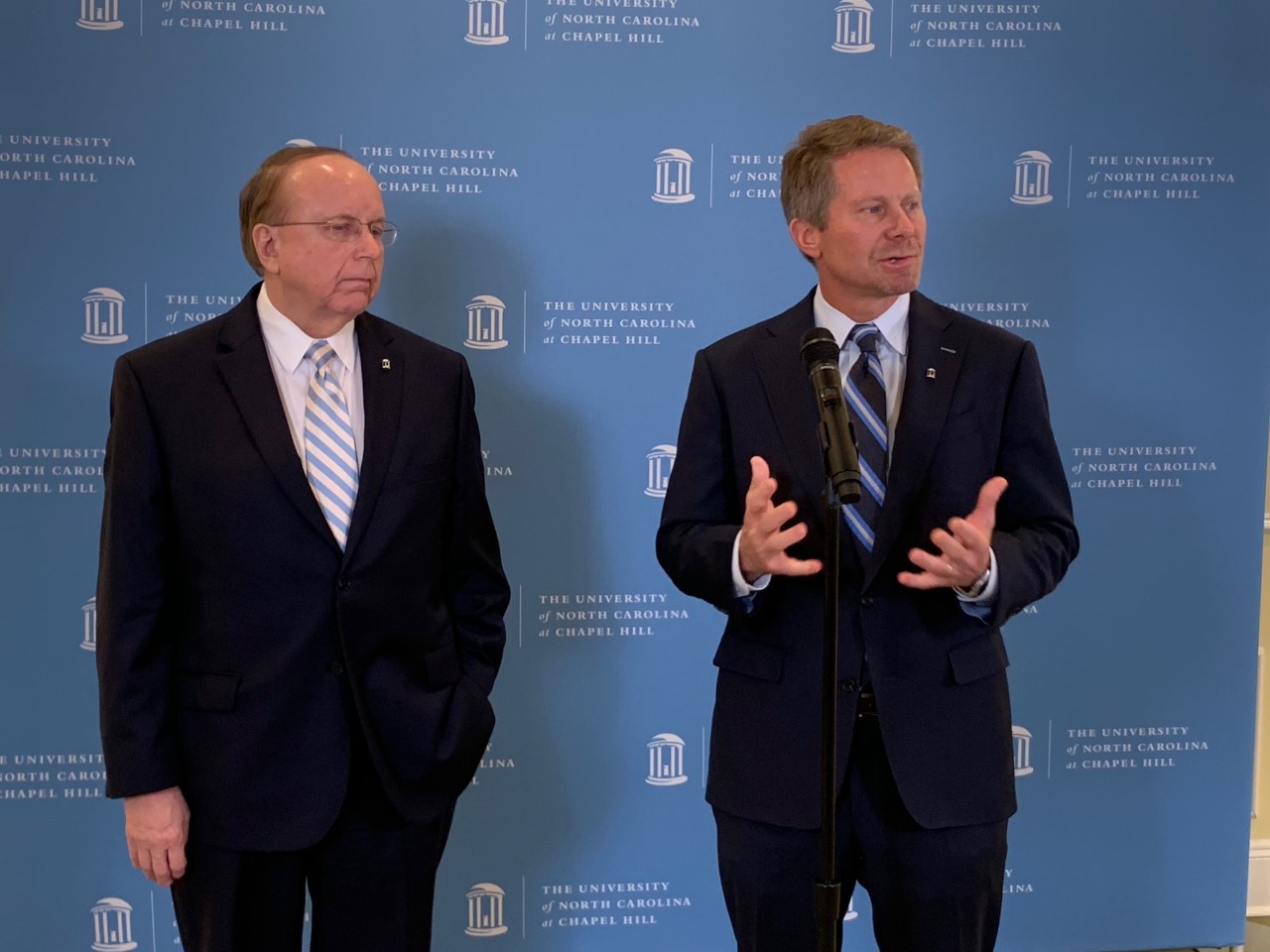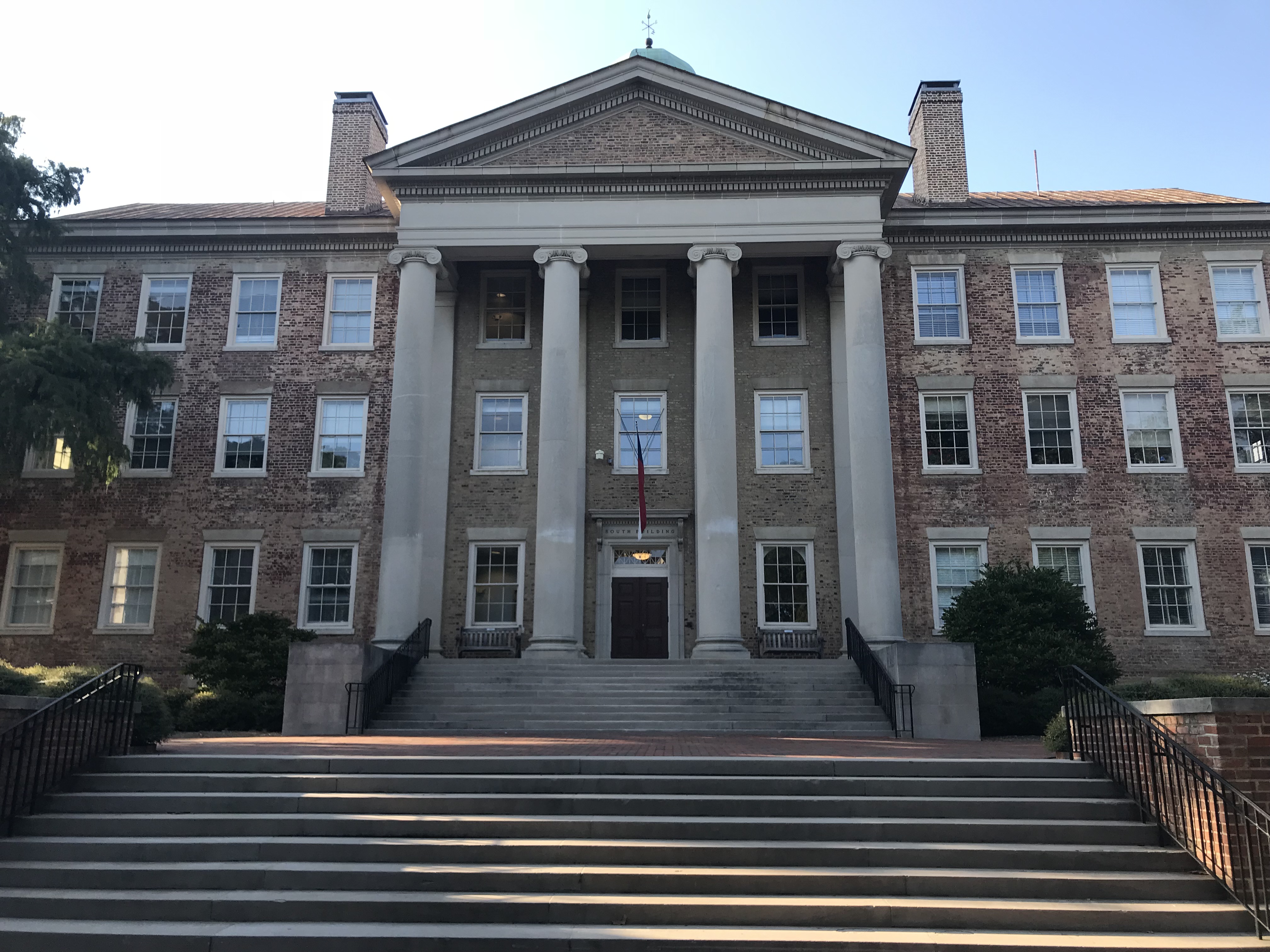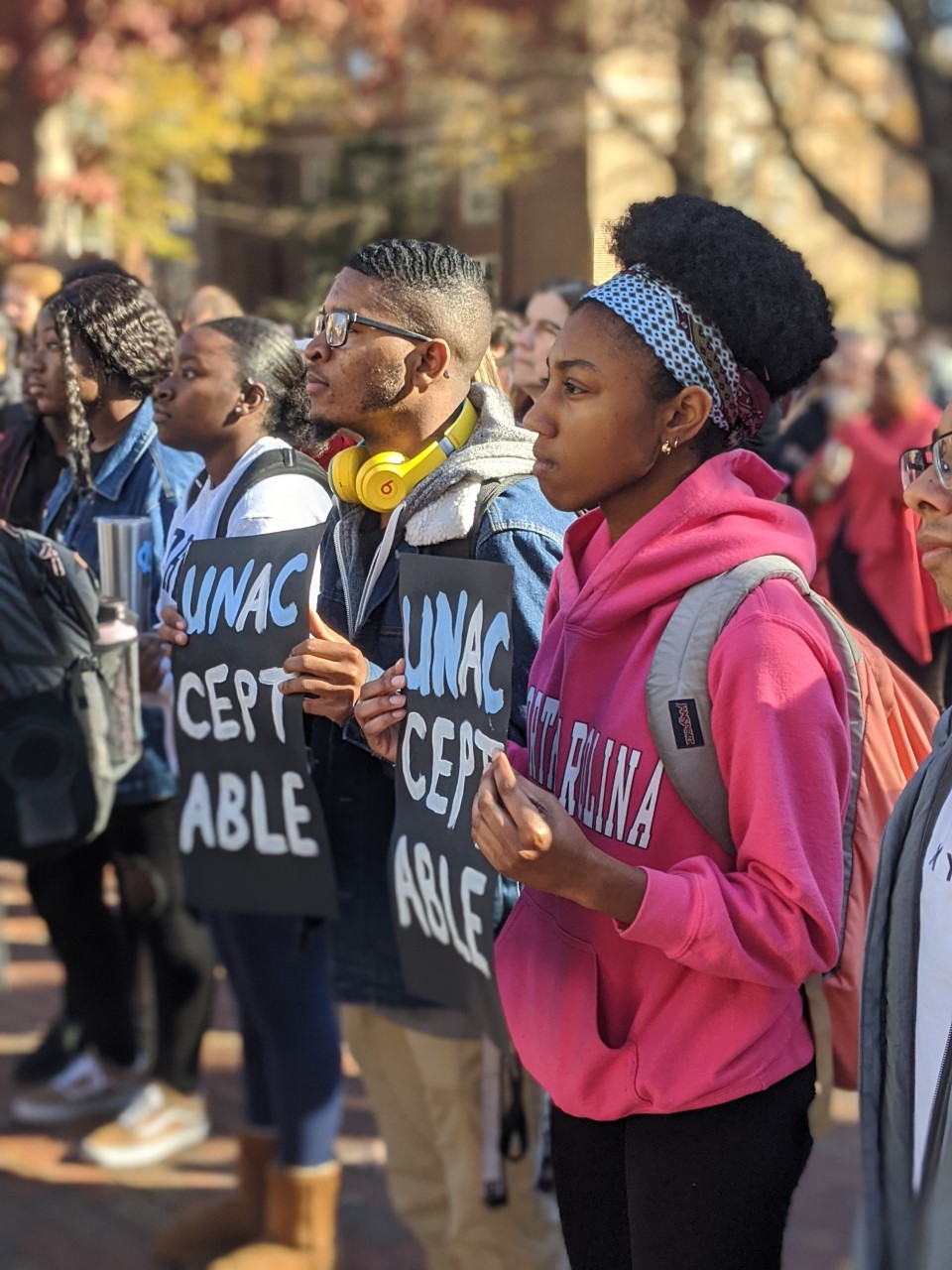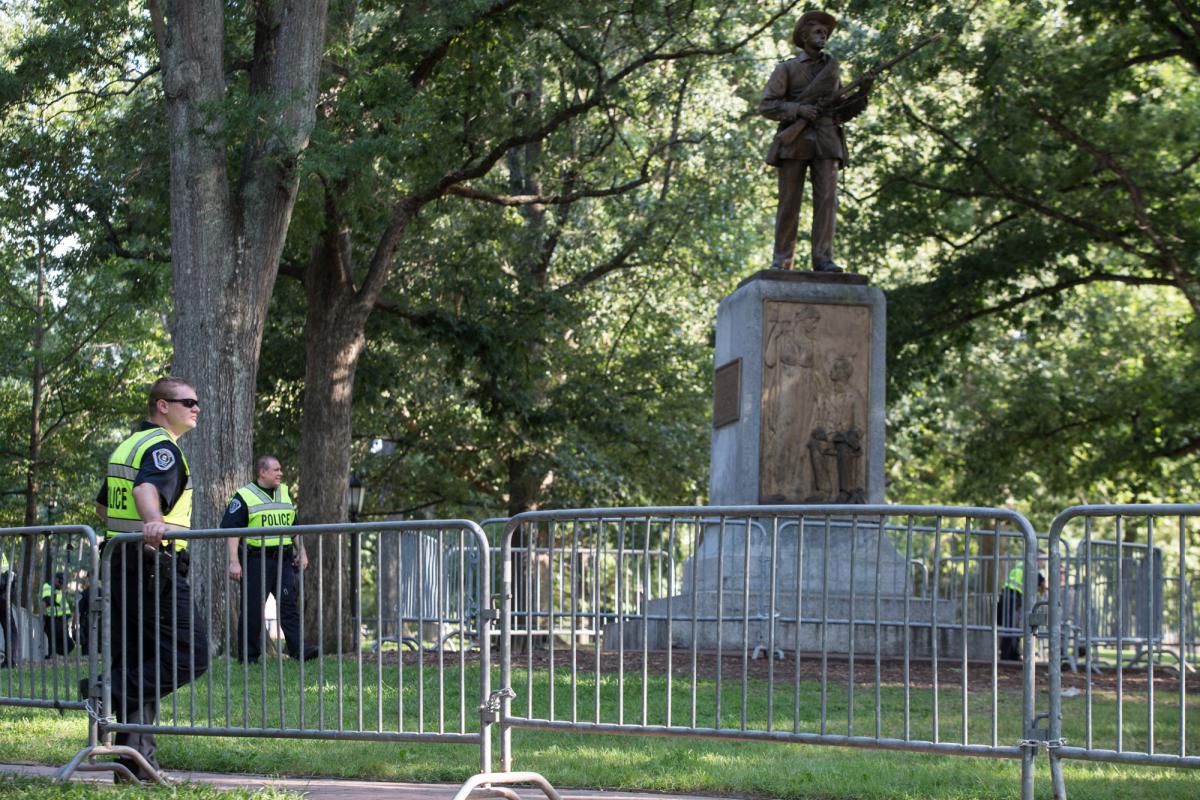The media group which owns the student newspaper The Daily Tar Heel filed a lawsuit against the University of North Carolina and the UNC System Board of Governors on Wednesday.
DTH Media Corporation filed the lawsuit, alleging the settlement between the Board of Governors and the pro-Confederate group the Sons of Confederate Veterans over a Confederate monument violated North Carolina’s open meeting laws. In it, the media company points to the negotiation and approval in secrecy by the board as grounds to null and void its settlement, which was made official in November.
Durham attorney Greg Doucette shared the official complaint in the lawsuit on his Twitter page.
After being toppled by protesters in 2018, university leadership debated over the future of the Confederate monument known as Silent Sam. UNC students, faculty and community members voiced their opposition for any return of the monument to campus, while others said it ought to be reinstalled to avoid violation of the state’s ‘objects of remembrance’ law.
On November 27, the Sons of Confederate Veterans sued the UNC System over not returning the monument to campus. The system reached a consent judgement the same day, creating a $2.5 million trust for the statue’s preservation and display and cedeing its possession to the pro-Confederate group. Court documents originally accessed by WRAL reporter Sarah Krueger, however, show UNC System Interim President Bill Roper signed the consent judgement for the settlement on November 26, with chair of the Board of Governors Randy Ramsey signing November 22.
According to a North Carolina statute, each official meeting of a public body should be open to the public and available for anyone to attend. The UNC System Board of Governors qualifies as a public body since it is appointed by elected officials. The statute also defines an official meeting as one made up of a majority of the members of a public body for the purpose of participating in deliberations or transacting the public business within its jurisdiction.
The settlement led to protests by UNC students and faculty in December, who said the decision supported the ideology of white supremacy. UNC Chancellor Kevin Guskiewicz, who served in the interim role at the time, wrote a letter to the UNC System Board of Governors expressing concern the trust may be used to fund other actions by the Sons of Confederate Veterans not regarding the monument.
A civil rights group filed a lawsuit against the UNC System in December, alleging UNC students should be part of the original lawsuit in an effort to reject the settlement. The superior court judge ruled the plaintiffs lacked legal standing to enter into the case.
Related Stories
‹
![]()
Court Docs: UNC System Prepared Silent Sam Settlement Before Lawsuit Was FiledThe UNC System announced Wednesday November 27 it was settling a lawsuit the Sons of Confederate Veterans had filed against it. But according to court documents, the settlement of a $2.5 million trust fund and possession of the Confederate monument known as Silent Sam was determined before the lawsuit was even filed. Court documents accessed […]
![]()
Group of UNC Alumni Say Pro-Confederate Group Had No Standing in Silent Sam LawsuitA group of UNC alumni and donors filed court documents into the lawsuit between the UNC System and a pro-Confederate group on Wednesday, arguing there was no standing for the lawsuit that led to a $2.5 million settlement. 88 alumni of the university, including 14 members of the UNC Black Pioneers, entered a brief to […]
![]()
Judge Blocks Civil Rights Lawyers, UNC Students Efforts to Intervene in Silent Sam DealAn Orange County judge will not let students intervene in a settlement that gave a Confederate heritage group money to preserve a monument that protesters tore down at North Carolina’s flagship public university. Judge Allen Baddour ruled that the University of North Carolina students represented by the Lawyers’ Committee for Civil Rights Under Law lacked […]

UNC Interim Chancellor Guskiewicz Sends Letter to UNC System, Voices Concerns over Silent Sam SettlementAfter a more than a week of protests by the campus community against the UNC System’s decision to settle a lawsuit with a pro-Confederate group, UNC Interim Chancellor Kevin Guskiewicz sent a letter to the system’s leadership outlining concerns over the decision. Guskiewicz, who shared the letter in a message to the campus community on […]

UNC Faculty Condemn System's Settlement with Pro-Confederate Group in ResolutionFaculty members of UNC voiced their opposition to a settlement by the UNC System with a pro-Confederate group over the statue known as Silent Sam. At its monthly meeting on Friday, the UNC Faculty Council passed a resolution criticizing the decision to create a $2.5 million trust fund and cede possession of the Confederate monument […]

UNC Students Protest System's Settlement over Silent SamThe spot where Silent Sam once stood on McCorkle Place is now covered with fallen leaves, making it impossible to tell exactly where the Confederate statue was before being toppled in 2018. Protesters walked over it on their way to the steps of South Building as part of a demonstration to speak out against the […]
![]()
UNC System Settles Silent Sam's Future, Gives Statue to Sons of Confederate VeteransThe University of North Carolina System reached a resolution to the future of the Confederate monument known as Silent Sam on Wednesday. A court approved a consent judgement that would give possession, rights, title and interests of the statue over to the Sons of Confederate Veterans — removing UNC as the institution possessing Silent Sam. […]

UNC System Settles Lawsuit With Daily Tar Heel Over Silent Sam SecrecyThe UNC System settled an ongoing lawsuit with the parent company of the Daily Tar Heel newspaper over potential open meeting law violations on Monday. The settlement, announced by the Daily Tar Heel, concludes a lawsuit filed in January 2020 by the DTH Media Corp. against the university system, its Board of Governors and individual […]
![]()
Orange County Judge: SCV Have 45 Days to Return 'Silent Sam' to UNCA judge imposed a 45-day deadline on the Sons of Confederate Veterans to return the Silent Sam statue to the University of North Carolina. Orange County Superior Court Judge Allen Baddour also ruled that the group must return the remaining balance of a $2.5 million trust fund that the university’s board of governors set up […]
![]()
Confederate Group Lawsuit, Silent Sam Settlement Dismissed in CourtAn Orange County judge has dismissed the lawsuit filed by the Sons of Confederate Veterans against the UNC System, voiding the $2.5 million payment to the pro-Confederate group and the transfer of property of the Silent Sam monument. After hearing arguments from both original parties, as well as two groups who filed amicus briefs arguing […]
›





